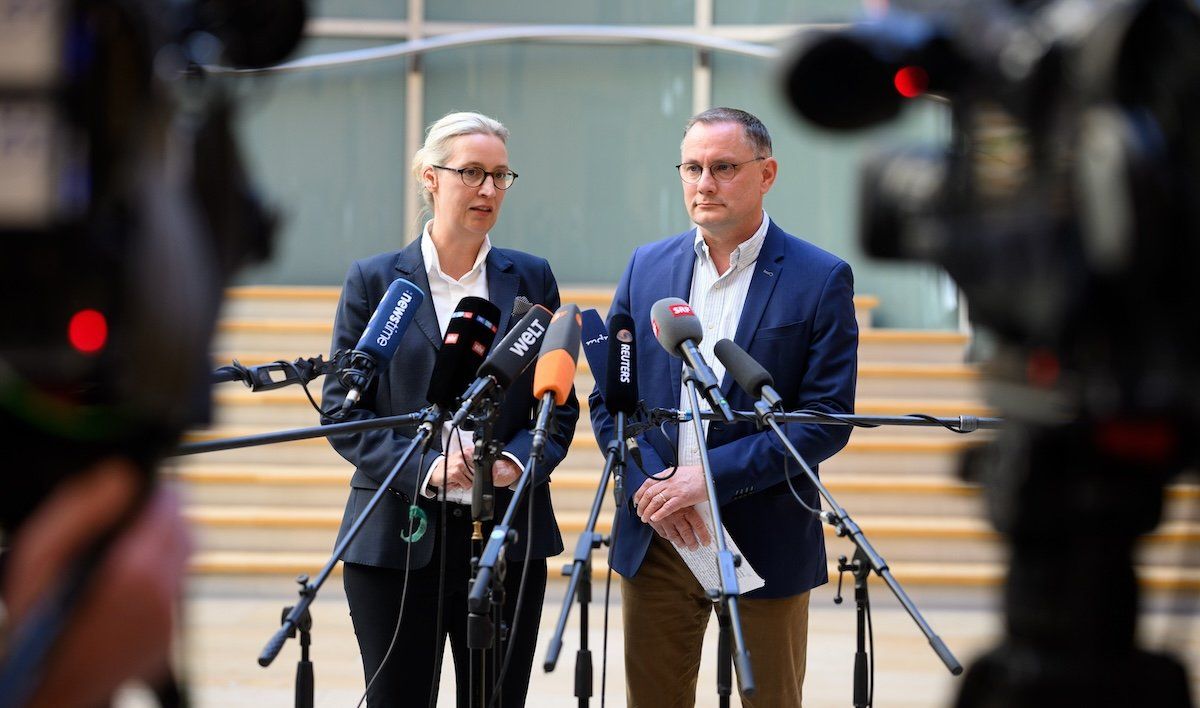A German court
ruled Monday that the country’s domestic intelligence agency, BfV, was correct to designate the Alternative for Germany, aka AfD, one of the country’s most popular political parties, as a suspected extremist group, making state surveillance of its activities legal.
Germany’s interior minister lauded the ruling by asserting the BfV had tools to protect the state from extremism and that “it is precisely these tools which will now be deployed.” Eurasia Group’s Jan Techau notes that, though we shouldn’t expect a sudden flurry of (surveillance) activity to emerge, “this ruling will not be lost on agencies in other federal states who now might feel emboldened to increase their activities.”
The verdict, from the Higher Administrative Court of North Rhine-Westphalia, one of Germany’s largest states, also applies to the party’s youth organization and a group inside the party known as the “Wing.” It cannot be appealed.
This major legal defeat is the latest in a series of setbacks for AfD, which has at times polled as one of Germany’s most popular political parties. Multiple scandals, including charges that one senior party official had spied for China while others had ties to white nationalists, have weighed heavily on the AfD’s approval numbers in recent weeks.
